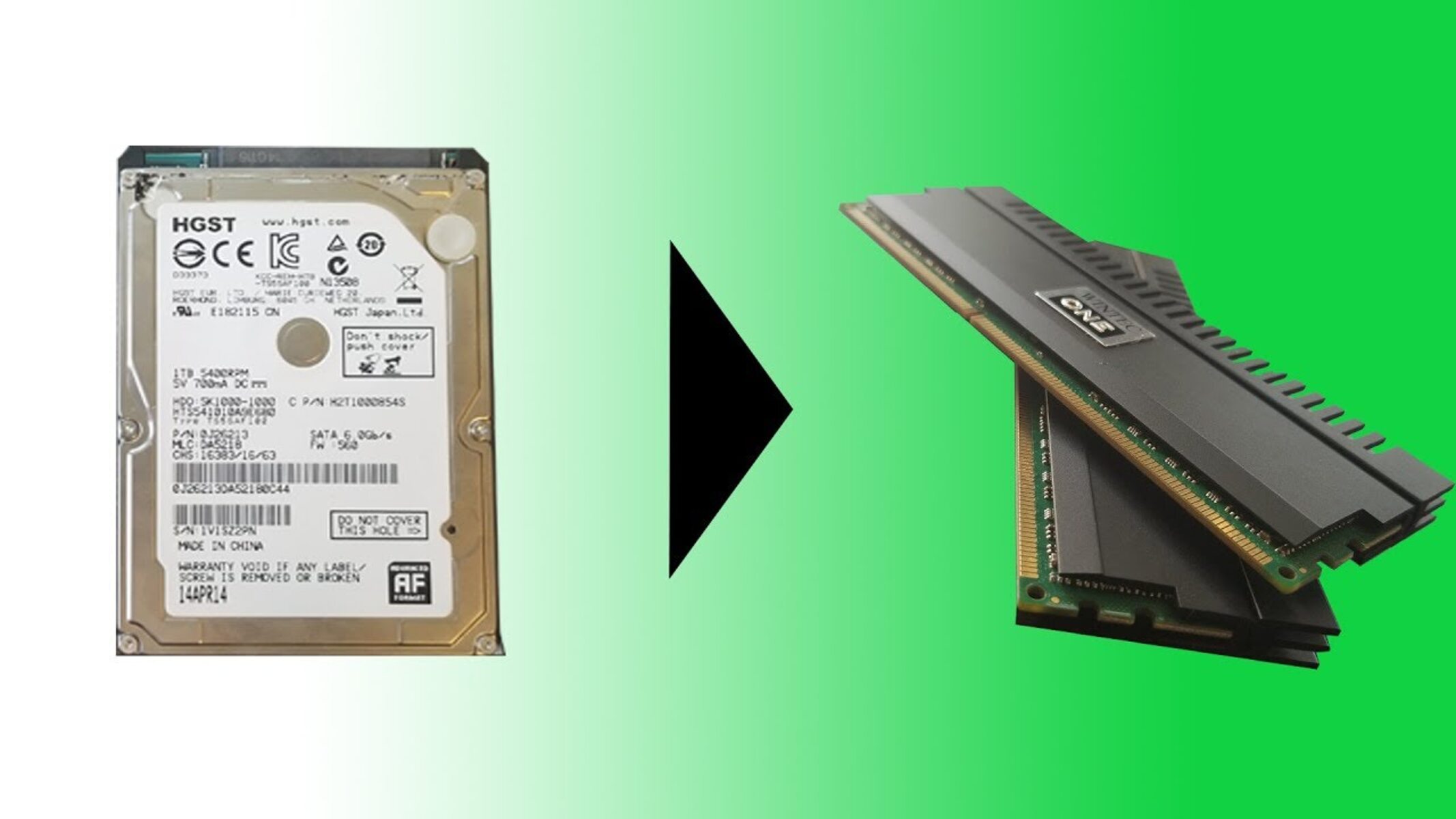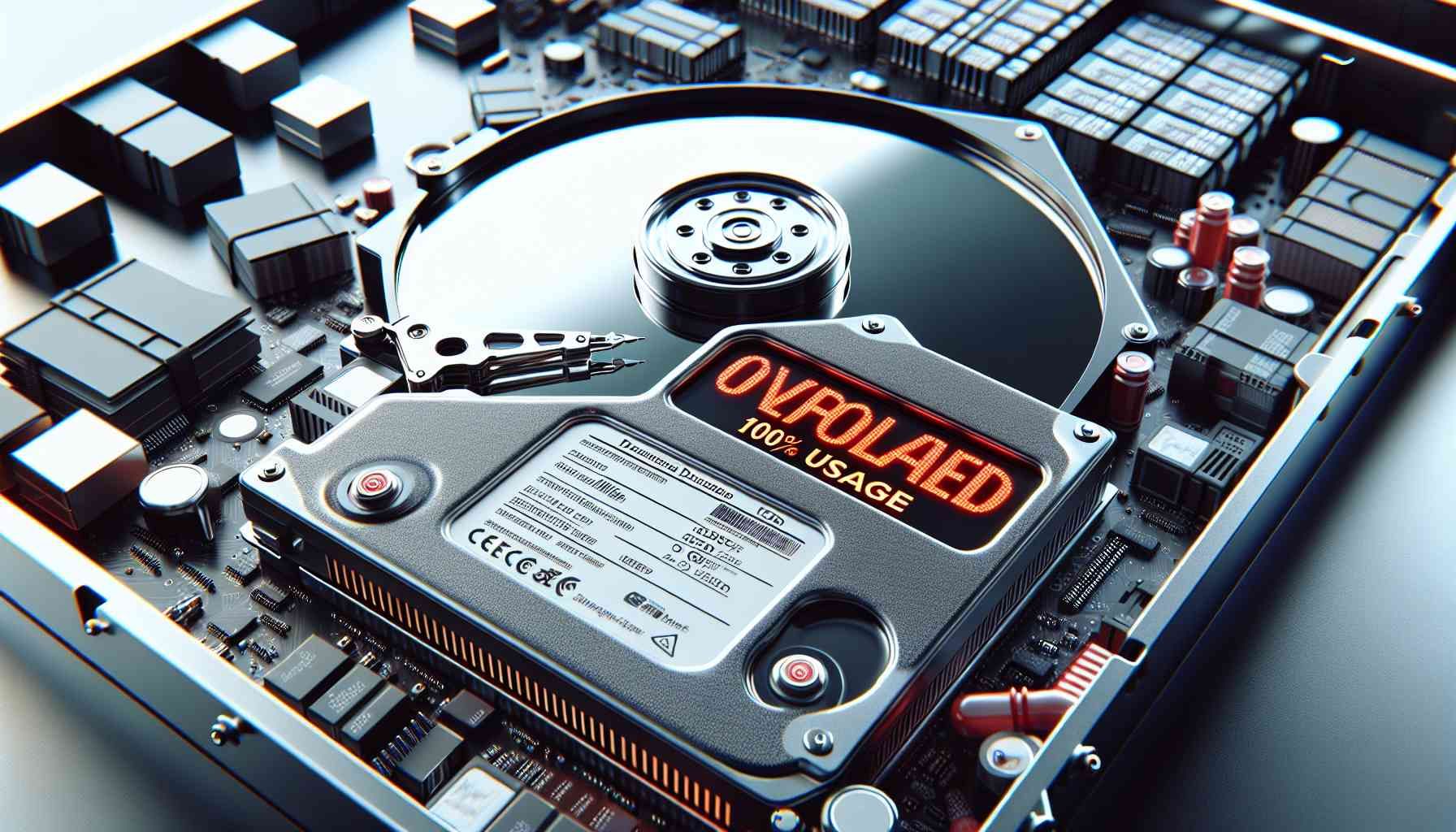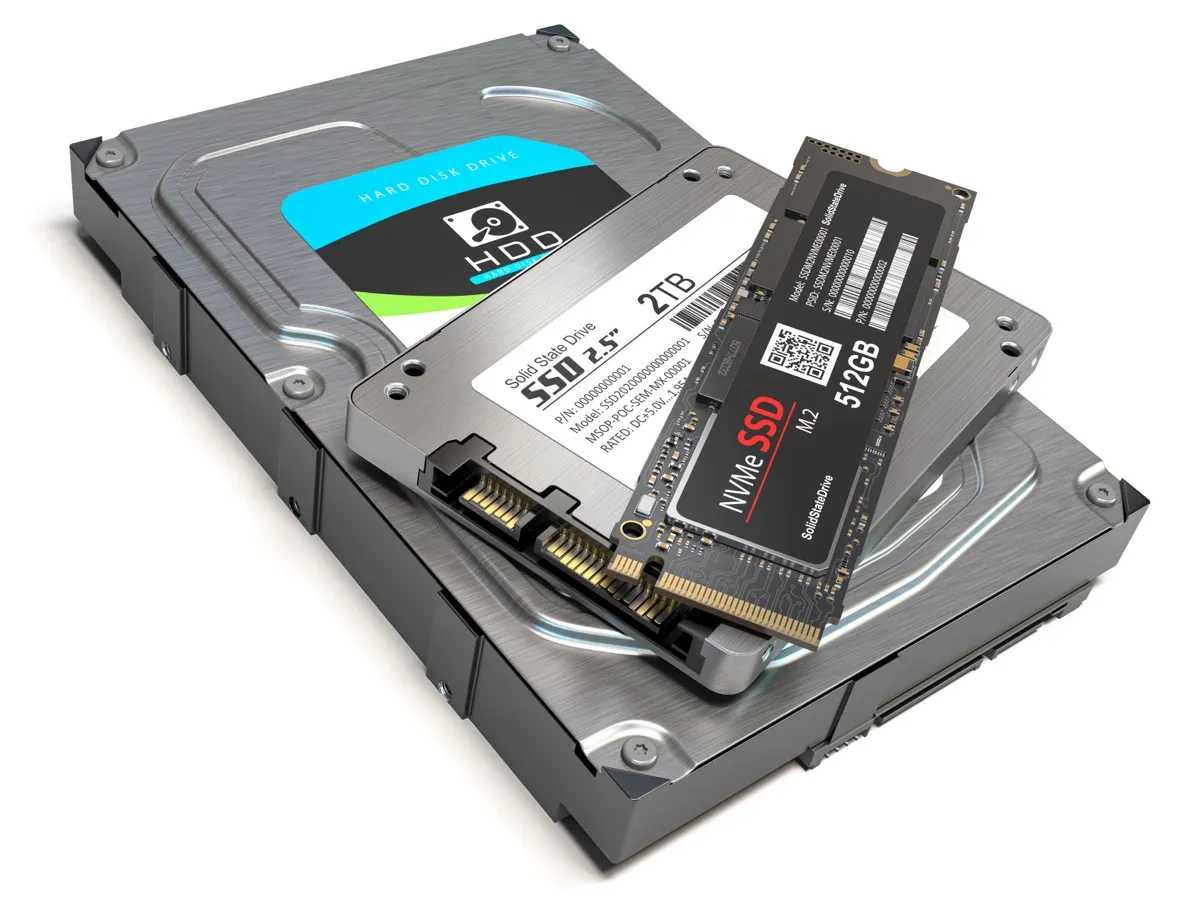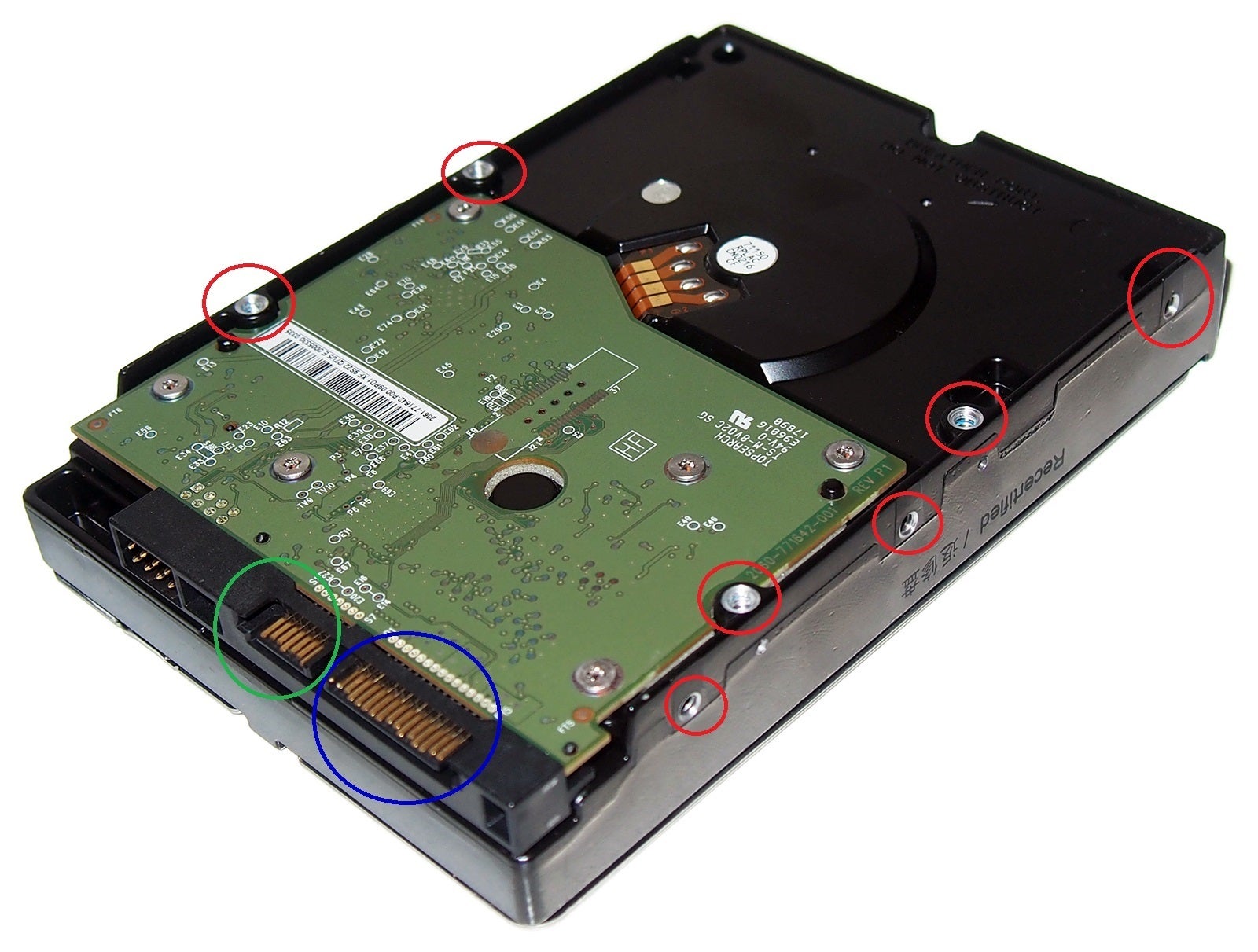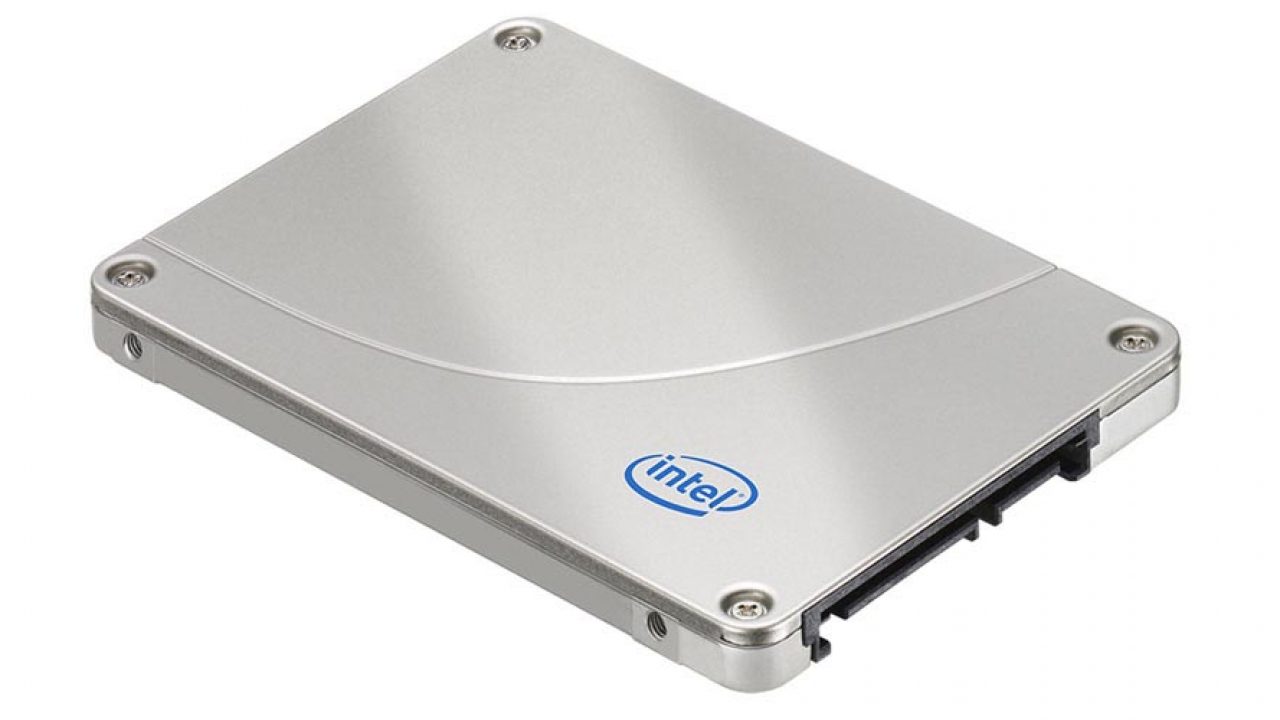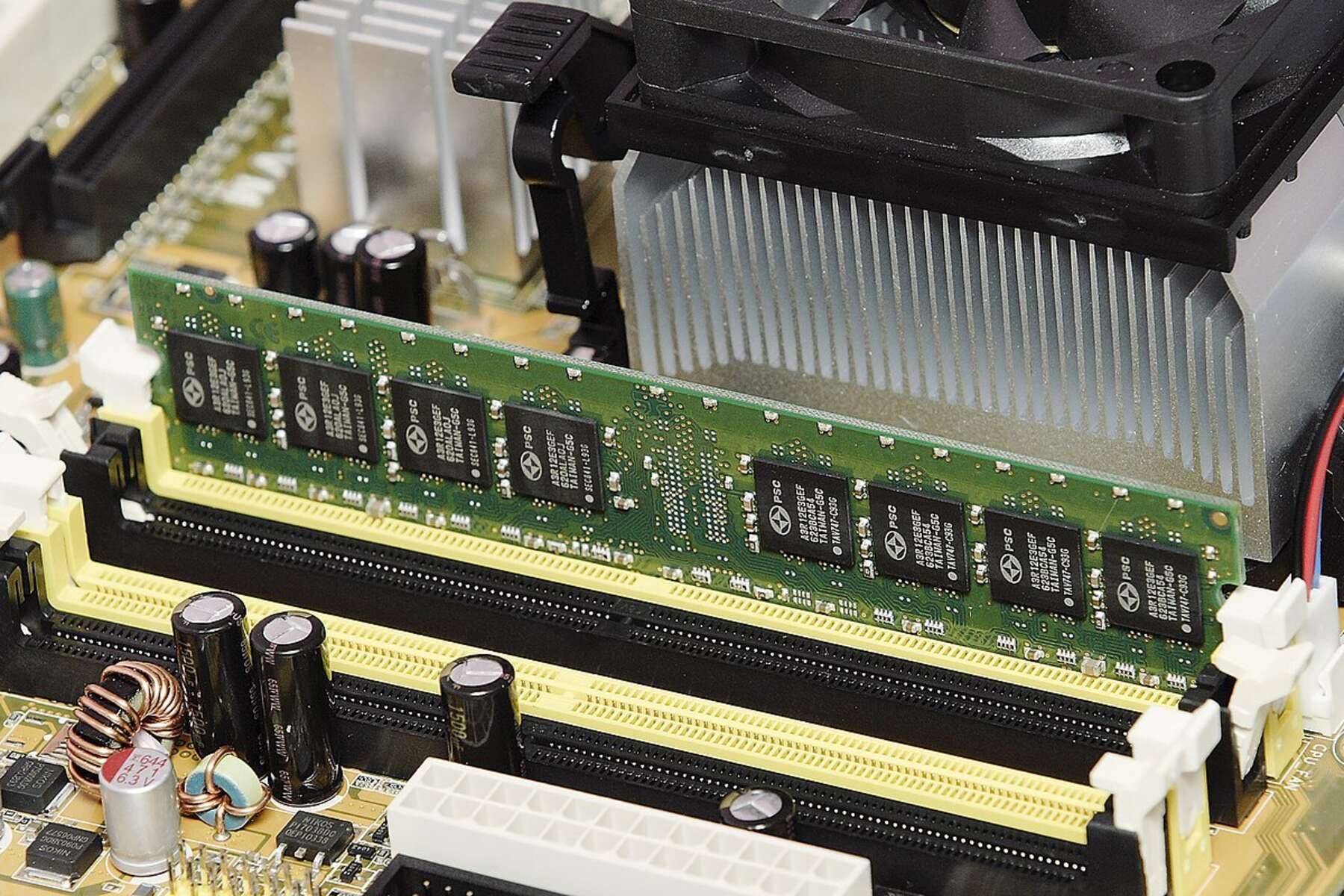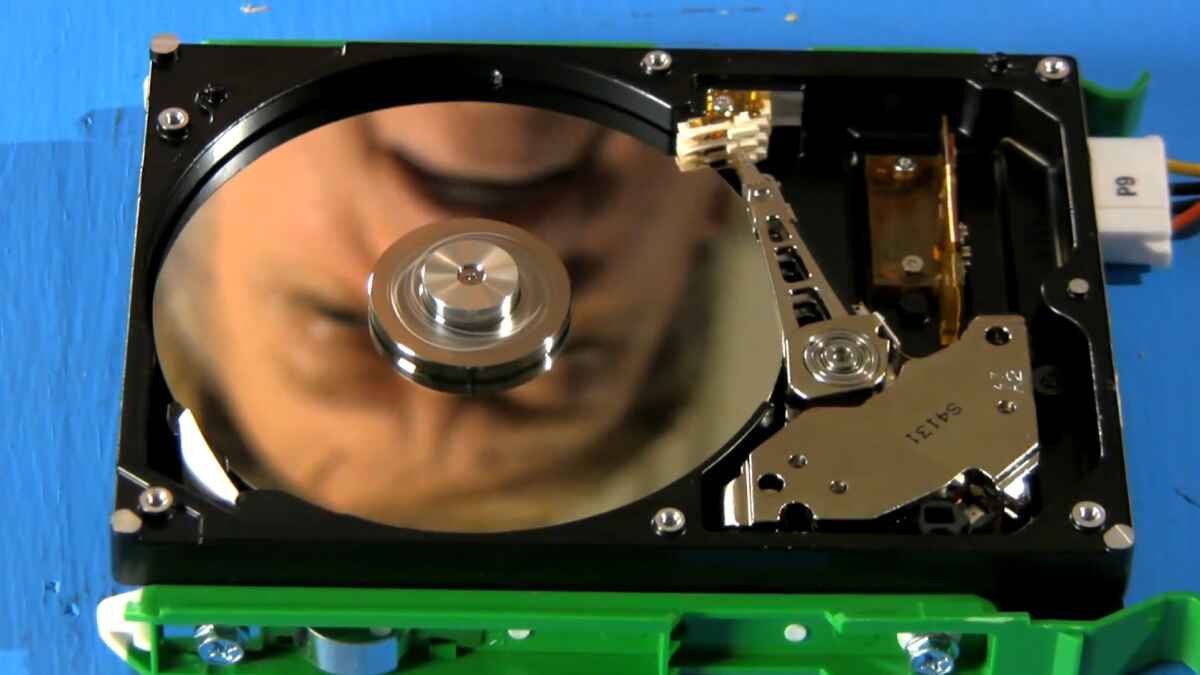Introduction
Welcome to the world of hard disk drives! In today’s digital age, where we generate and consume vast amounts of data, having reliable and efficient storage solutions is of utmost importance. A hard disk drive (HDD) is one such solution that has been a cornerstone of computer storage for decades. Whether you’re a tech enthusiast looking to build your own PC or an average consumer in need of extra storage space, understanding the ins and outs of HDDs can help you make informed purchasing decisions.
A hard disk drive is a non-volatile storage device that stores and retrieves digital information using magnetic storage technology. It consists of one or more rotating platters coated with a magnetic material, an actuator arm, and a read/write head. The platters spin at high speeds, while the actuator arm positions the read/write head to access the desired data on the platters. This mechanical design allows for quick retrieval and storage of data, making HDDs excellent for storing large volumes of information.
When considering purchasing a hard disk drive, there are several factors to take into account. One of the most significant factors is the price. The cost of HDDs can vary widely based on different factors such as storage capacity, drive speed, brand, and quality. Understanding these factors can help you find the right HDD that meets both your storage needs and budget constraints.
In this article, we will delve into the various aspects of hard disk drives and explore how different factors can affect their prices. We will also discuss the different storage capacities available, compare HDDs with solid-state drives (SSDs), and provide some insights on brand and quality considerations. By the end, you will have a better understanding of hard disk drives and be better equipped to make an informed decision when purchasing one.
What is a Hard Disk Drive?
A hard disk drive (HDD) is a type of storage device that is commonly used in computers and other electronic devices to store and retrieve digital data. It is composed of one or more spinning disks, called platters, which are coated with a magnetic material. Data is written to and read from the platters using a read/write head that moves across the surface of the disks. This magnetic storage technology is what sets HDDs apart from other types of storage devices.
The platters in a hard disk drive spin at high speeds, typically ranging from 5,400 to 7,200 revolutions per minute (RPM). The faster the platters spin, the quicker the read/write head can access the data. This rotational speed, along with the seek time (the time it takes for the read/write head to move to the correct position), determines the overall performance of the HDD. High-speed HDDs are often preferred for tasks that require fast data access, such as gaming or video editing.
HDDs come in various storage capacities, ranging from a few hundred gigabytes (GB) to multiple terabytes (TB). The size and number of platters, as well as the density of the data stored on them, determine the overall storage capacity of the hard disk drive. The larger the capacity, the more data the drive can store, making it suitable for applications that involve storing large files, such as multimedia content or backups.
One of the greatest advantages of HDDs is their cost-effectiveness compared to other storage technologies. Hard disk drives generally offer a higher storage capacity at a lower cost per gigabyte compared to solid-state drives (SSDs). This affordability makes HDDs a popular choice for consumers seeking large storage capacity at an affordable price point.
However, it’s essential to note that HDDs have moving parts, which make them susceptible to mechanical failure and slower in terms of data transfer speeds compared to SSDs. Despite these drawbacks, hard disk drives remain a reliable and widely-used storage solution in both personal and professional settings.
Factors Affecting the Price of Hard Disk Drives
The price of hard disk drives (HDDs) can vary significantly based on several factors. Understanding these factors can help you navigate the market and choose the right HDD that fits your requirements and budget. Let’s explore the primary factors that affect the price of HDDs.
1. Storage Capacity: The storage capacity of an HDD is one of the most significant factors influencing its price. HDDs come in various capacities, ranging from a few hundred gigabytes to several terabytes. As the storage capacity increases, so does the price of the hard disk drive. If you need a large amount of storage space, be prepared to pay more for a higher-capacity HDD.
2. Drive Speed: The rotational speed of the platters, measured in revolutions per minute (RPM), affects the performance and price of an HDD. Higher RPMs generally result in faster data access and transfer speeds. HDDs with higher speeds are often pricier than their slower counterparts. If you require faster read and write speeds, investing in a higher RPM HDD might be worth considering.
3. Technology Advancements: The evolution of HDD technology plays a role in pricing. As newer technologies are developed and introduced to the market, older HDD models tend to decrease in price. This is because the older models become less in demand as consumers increasingly opt for the latest advancements. Considering the trade-off between cost and performance is vital when deciding on an HDD.
4. Brand and Quality: The reputation and quality of the HDD brand can impact the price. Established and reputable brands often charge a premium for their products due to their track record of reliability and customer satisfaction. While opting for a brand with a good reputation can provide peace of mind, it’s important to balance brand recognition with your budget and storage needs.
5. Market Demand: Like any other product, market demand influences the price of HDDs. If there is a high demand for a specific capacity or model, the price is likely to be higher. On the other hand, if a certain HDD has low demand, sellers may reduce the price to attract buyers. Keeping an eye on market trends and fluctuations can help you find an HDD at a more competitive price.
It’s important to note that while HDDs offer more affordable storage compared to solid-state drives (SSDs), their prices can still vary depending on the factors mentioned above. When considering an HDD purchase, it’s crucial to evaluate your specific needs and preferences to find the right balance between price, capacity, and performance.
Storage Capacities and Price Range
Hard disk drives (HDDs) come in a wide range of storage capacities, catering to different storage needs and budgets. Understanding the relationship between storage capacity and price can help you find the right HDD that meets your requirements without breaking the bank.
The storage capacities of HDDs vary from a few hundred gigabytes (GB) to multiple terabytes (TB). The higher the storage capacity, the more data the drive can store. However, it’s important to note that as the storage capacity increases, so does the price of the HDD. This is because higher-capacity HDDs require more platters, superior manufacturing processes, and advanced technologies to achieve the increased storage space.
At the lower end of the storage capacity spectrum, you can find HDDs with capacities ranging from 250GB to 500GB. These are often more affordable and suitable for basic storage needs, such as storing documents, photos, and music files. They are commonly used in entry-level laptops, gaming consoles, and desktops.
Moving up from there, the mid-range HDDs typically offer storage capacities between 1TB and 4TB. These drives strike a balance between price and storage space, making them a popular choice for consumers who require a significant amount of storage without breaking the bank. They are suitable for storing multimedia content, larger software applications, and games.
For users with more demanding storage needs, high-capacity HDDs are available with capacities ranging from 6TB to 14TB and beyond. These drives are often used by professionals, businesses, and content creators who work with large files, such as high-resolution videos, graphic design projects, and databases. However, it’s important to note that the higher-capacity HDDs tend to have a higher price per terabyte, making them relatively more expensive.
It’s worth considering that the storage capacity you choose should align with your specific needs. Purchasing an HDD with excessive storage capacity can result in unnecessary expenses, while opting for too little storage may lead to frequent expansion or upgrading.
Additionally, you may find variations in price range within each storage capacity category due to factors like brand reputation, drive speed, and technology advancements. Major HDD manufacturers, such as Seagate, Western Digital, and Toshiba, offer a wide range of options at different price points. Comparing prices and considering customer reviews and reliability can help you make an informed decision about the best HDD within your desired storage capacity and budget.
In summary, the price of HDDs varies based on the storage capacity. Lower-capacity drives are more affordable, while higher-capacity drives are relatively more expensive. It’s essential to strike the right balance between storage needs and budget to find the most cost-effective solution for your data storage requirements.
Different Types of Hard Disk Drives
When it comes to hard disk drives (HDDs), there are different types available that cater to specific requirements and use cases. These types differ in terms of their physical design, performance characteristics, and intended applications. Let’s explore the main categories of hard disk drives to help you understand their differences and choose the right one for your needs.
1. Internal Hard Disk Drives: Internal HDDs are designed to be installed inside a computer or laptop. They come in standard sizes, such as 3.5-inch and 2.5-inch form factors, to fit desktop and laptop computers, respectively. Internal HDDs offer a wide range of storage capacities and are commonly used for operating system installations, storing personal files, and running applications. They connect to the computer through SATA (Serial ATA) or, in some cases, newer interfaces like PCIe (Peripheral Component Interconnect Express) for higher data transfer speeds.
2. External Hard Disk Drives: External HDDs are standalone devices that connect to a computer via USB, Thunderbolt, or eSATA ports. These drives are portable and provide additional storage capacity outside of a computer’s internal storage. External HDDs offer flexibility in terms of being able to connect to multiple devices and are commonly used for data backups, carrying large amounts of data on the go, or expanding storage capacity for gaming consoles and smart TVs.
3. Network Attached Storage (NAS) Drives: NAS drives are specialized HDDs designed to be used in NAS enclosures. NAS devices are dedicated storage solutions that connect to a computer network, allowing multiple users to access files and data simultaneously. NAS drives are typically designed to run continuously, have advanced error correction mechanisms, and include features like RAID (Redundant Array of Independent Disks) for data redundancy and improved performance.
4. Enterprise Hard Disk Drives (HDDs): Enterprise HDDs are high-performance drives designed for heavy-duty applications, such as data centers and server environments. They are built to provide superior reliability, faster data access times, and higher endurance. Enterprise drives often have additional features like power-loss protection and enhanced error correction to ensure data integrity in demanding environments.
5. Solid-State Hybrid Drives (SSHDs): SSHDs combine the features of traditional HDDs with solid-state drive (SSD) technology. They have a mechanical spinning disk for bulk storage and a small amount of solid-state memory for caching frequently accessed data. The SSD caching improves overall system performance by storing frequently-used data in the faster flash memory. SSHDs are popular among users looking for a balance between the cost-effectiveness of HDDs and the improved performance of SSDs.
Choosing the right type of HDD depends on your specific requirements, such as storage capacity, performance needs, and intended use. Internal HDDs are suitable for adding storage to your computer, while external HDDs offer flexibility and portability. NAS drives are ideal for network storage setups, and enterprise drives are designed for heavy workloads and data center applications. SSHDs bridge the gap between traditional HDDs and SSDs, offering a balance between price and performance.
By understanding the different types of hard disk drives, you can make an informed decision based on your storage needs and the specific features provided by each type.
Comparison with Solid-State Drives (SSDs)
When considering storage options, it’s important to compare hard disk drives (HDDs) with solid-state drives (SSDs). While HDDs have been the traditional choice for storage due to their affordability and high storage capacity, SSDs have gained popularity for their superior performance and reliability. Let’s compare HDDs and SSDs to understand their differences and determine which one suits your needs better.
1. Performance: SSDs offer significantly faster performance compared to HDDs. They have no moving parts and rely on flash memory to store and retrieve data. This leads to faster data access times, quicker boot-up and application launch times, and faster file transfer speeds. HDDs, on the other hand, have spinning platters and mechanical read/write heads, which result in slower performance in terms of data access and transfer speeds.
2. Durability: SSDs are more durable than HDDs since they lack moving parts. Without spinning disks or mechanical components, SSDs are less susceptible to physical damage caused by bumps, drops, or vibrations. HDDs, on the other hand, are sensitive to movement and can be more prone to failure due to mechanical wear and tear over time.
3. Noise and Heat: HDDs generate noise and heat due to their moving parts. The spinning platters and read/write heads result in audible noise and can contribute to the overall heat generated by the system. SSDs, being solid-state with no moving parts, operate silently and generate less heat, thereby helping to maintain cooler and quieter systems.
4. Power Efficiency: SSDs consume less power compared to HDDs. As SSDs have no moving parts, they require less energy to operate, leading to lower power consumption and longer battery life in portable devices. This power efficiency can be an advantage for laptops, tablets, and other battery-powered devices.
5. Price and Storage Capacity: HDDs are generally more affordable than SSDs, offering lower cost per gigabyte in terms of storage capacity. SSDs, while becoming more affordable over time, are still relatively more expensive than HDDs, especially for larger storage capacities. However, if you prioritize performance and durability over cost per gigabyte, SSDs may be the preferred choice.
In summary, SSDs offer superior performance, durability, power efficiency, and quiet operation compared to HDDs. They are ideal for users who require fast data access, prioritize durability, and want a quiet and power-efficient system. However, HDDs still have their place, particularly for users who need large storage capacities at an affordable price point and can tolerate slightly slower performance. Ultimately, choosing between HDDs and SSDs depends on your specific needs, budget, and priorities for storage performance and reliability.
Brand and Quality Considerations
When purchasing a hard disk drive (HDD), considering the brand and quality is essential to ensure you get a reliable and long-lasting storage solution. Different HDD brands offer varying levels of quality, performance, and customer support. Let’s explore some key factors to consider when evaluating brand and quality of HDDs.
1. Brand Reputation: Opting for a reputable brand can provide peace of mind as established brands often have a track record of delivering reliable products. Brands like Seagate, Western Digital, Toshiba, and HGST/Helium are known for their quality and reliability in the HDD market. These brands invest in research and development to ensure their products meet stringent quality standards and undergo rigorous testing.
2. Reliability and Failure Rates: Evaluating a brand’s reliability and failure rates can give you insight into the quality of their HDDs. Online reviews, customer feedback, and third-party reliability studies can provide valuable information about a brand’s track record. Lower failure rates indicate higher quality and reliability, ensuring your data remains safe and accessible for an extended period.
3. Warranty and Customer Support: A solid warranty and reliable customer support are indications that a brand stands behind its products. Look for HDDs that have a warranty period of at least three years or more. Additionally, consider brands that offer prompt and helpful customer support in case you encounter any issues with the product or need assistance during installation or maintenance.
4. Performance and Advanced Technologies: Some brands may offer HDDs with advanced technologies like noise reduction, power-saving features, enhanced error correction, and data recovery options. These technologies can improve performance, reliability, and user experience. Researching the technologies and features offered by different brands can help you choose an HDD that aligns with your specific requirements.
5. Compatibility and Drive Compatibility Lists (DCLs): Certain HDD brands may have better compatibility with specific systems or applications. Checking compatibility with your computer, gaming console, or other devices can help avoid any issues during installation or usage. Additionally, some brands provide Drive Compatibility Lists (DCLs) that specify the drives compatible with specific computer systems or RAID configurations. Consulting these lists can ensure compatibility and optimal performance.
While considering brand and quality is crucial, it’s essential to balance it with your budget and specific requirements. Higher-end brands may come at a higher price point, but they often offer superior performance and reliability. However, if you have specific storage needs, such as high-capacity storage, you may find reliable options from other brands. It’s all about finding the right balance between quality, brand reputation, and your budget.
By evaluating brand reputation, reliability, warranty, customer support, performance, and compatibility, you can make an informed decision and choose an HDD from a reputable brand that meets your storage needs while ensuring high-quality and reliable performance.
Factors to Keep in Mind while Purchasing a Hard Disk Drive
Choosing the right hard disk drive (HDD) involves considering several factors to ensure that you make an informed decision based on your specific needs and requirements. Here are some essential factors to keep in mind while purchasing an HDD.
1. Storage Capacity: Determine your storage needs and choose an HDD with an appropriate storage capacity. Consider factors such as the type and size of files you plan to store, as well as any future storage requirements. High-definition videos, large software applications, and games require more storage space, while basic document storage may require less.
2. Performance: Assess your performance requirements. If you need fast data access and quicker file transfer speeds, consider HDDs with higher rotational speeds (RPM) or solid-state drives (SSDs) for even better performance. Keep in mind that higher performance HDDs or SSDs may come at a higher price.
3. Budget: Set a budget that aligns with your storage needs and performance requirements. Determine how much you are willing to spend on an HDD without compromising on quality or storage capacity. Seek the best value for your budget by comparing prices and considering different brands and models within your price range.
4. Compatibility: Ensure the HDD you choose is compatible with your computer or device. Check the interface type (SATA, PCIe, etc.) and physical form factor (3.5-inch, 2.5-inch, etc.) to ensure proper installation and fit within your system. Additionally, consider any specific compatibility requirements for RAID configurations or external connections.
5. Brand and Quality: Consider the reputation, reliability, and quality of the brand. Research customer reviews, warranty policies, and failure rates to assess the brand’s track record in delivering quality HDDs. Established brands often provide better reliability, performance, and customer support, although they may come at a higher price point.
6. Data Backup and Redundancy: Evaluate your data backup needs and consider implementing redundancy measures. RAID configurations and NAS solutions can provide data redundancy and improved performance. Assess whether you require additional drives or devices to ensure the safety and accessibility of your important data.
7. Future Scalability: Consider your future needs and ensure the HDD you choose allows for future expansion. HDDs with larger storage capacities can accommodate future growth, reducing the need for frequent upgrades. Evaluate whether the HDD supports easy installation and integration into your existing storage infrastructure.
8. Power Consumption: Assess the energy efficiency of the HDD, especially if it will be used in a portable device or a system that requires lower power consumption. SSDs generally consume less power than HDDs, making them an ideal choice for laptops and other battery-powered devices.
By considering these factors, you can select an HDD that meets your storage needs, performance requirements, budget constraints, and long-term scalability. Remember to thoroughly research different options, compare prices, read customer reviews, and seek expert advice when necessary to make an informed and wise purchase decision.
Conclusion
Choosing the right hard disk drive (HDD) requires careful consideration of various factors, including storage capacity, performance, budget, compatibility, brand reputation, data backup needs, future scalability, and power consumption. By keeping these factors in mind, you can make an informed decision and select an HDD that meets your specific requirements and provides reliable and efficient storage.
HDDs offer affordable and high-capacity storage solutions, making them popular for a wide range of applications, from personal computers to data centers. Understanding the different types of HDDs, such as internal, external, NAS drives, enterprise drives, and SSHDs, allows you to choose the one that best suits your needs.
Comparing HDDs with solid-state drives (SSDs) reveals performance and reliability differences. While SSDs provide faster data access, enhanced durability, and lower power consumption, HDDs still have their place, providing cost-effective storage options for larger capacities.
When purchasing an HDD, paying attention to brand and quality considerations is crucial. Opting for reputed brands known for reliability, offering warranty coverage and excellent customer support can ensure peace of mind and a satisfactory user experience.
Lastly, no matter your final decision, it’s essential to remember that an HDD is just one component of your overall storage infrastructure. Backing up your data regularly and considering redundancy measures, such as RAID configurations or NAS solutions, will provide added security and data protection.
In conclusion, selecting the right HDD involves evaluating your storage needs, performance requirements, budget, brand reputation, and considering compatibility, future scalability, and power consumption. By taking all these factors into account and conducting thorough research, you can confidently choose an HDD that offers reliable performance, ample storage capacity, and peace of mind for your data storage needs.









